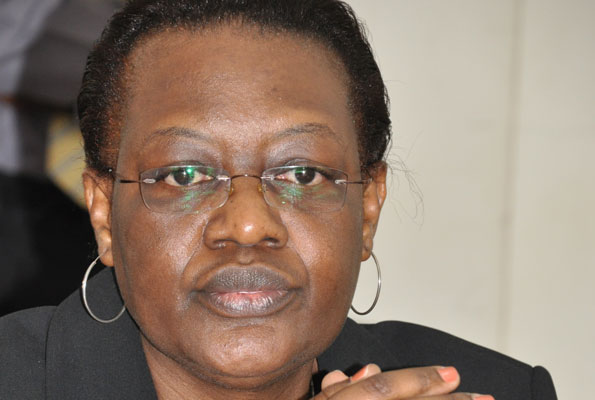The Inspector General of Government (IGG), Irene Irene Mulyagonja is a frustrated woman after revealing that Government Ministries, Departments and Agencies are increasingly ignoring her recommendations.
The IGG’s frustrations are contained in the 2019/2020 Ministerial Policy statements for the Inspectorate of Government that was presented before the Legal and Parliamentary Affairs Committee ahead of passing the national budget in June this year.
In her presentation, the IGG noted the non-implementation of IG recommendations upon completion of investigations is on the increase and cited out two financial years where a number of recommendations have not been implemented leading to the matter remaining unresolved.
“In 2016/2017, the IG followed up on 452 recommendations of which 207 were acted upon representing implementation rate of 45.8%. Similarly in 2017/2018 recommendations were followed and 390 were implemented representing 23.5%,” the statement read.
The IGG also raised concerns on the budget cuts revealing that in the last three financial years, the Non-Wage Recurrent budget allocation to the Inspectorate of Government has reduced by Shs1.677Bn that is from Shs19.721Bn in 2017/2018 to Shs18.041Bn in 2018/2019.
However, fixed costs which constitute over 85% of the non wage recurrent budget namely 30% gratuity, 10% NSSF contributions, rent utilities and investigations have increased to Shs15.40Bn. the above conditions have left the institution with funding gap of Shs2.30Bn for operational expenses for a number of items.
Among the items affected by budget cuts include; travel inland for investigations, prosecution and enforcement of leadership code to the tune of Shs1.26bn , vehicle maintenance tyres, servicing and repairs for 109 cars-Shs542M and fuel- Shs510M.
The IGG also joined the other Government officials in raising concerns about the rate at which new administrative units are being formed especially in the last three years where the number of districts, municipalities, town councils and sub counties has significantly increased which has increased workload yet the capacity of the IG to handle corruption and ombudsman complaints has not commensurately changed to match with the increasing work load.
She argued that as much as the 16 regional offices have hosted 5 technical staff for each regional office, the Inspectorate is seeking for Shs4bn for recruitment of additional 30 staff to deal with increasing work load.
Mulyagonja also decried delays in the judicial process, arguing that although Government established the Anti-Corruption Division of the High Court which significantly shortened the period taken to complete prosecution of corruption cases, the Court isn’t immune of cases face delays in court of justice for various reasons including but not limited to transfer judicial officers and continuous adjournments and lack of quorum.





